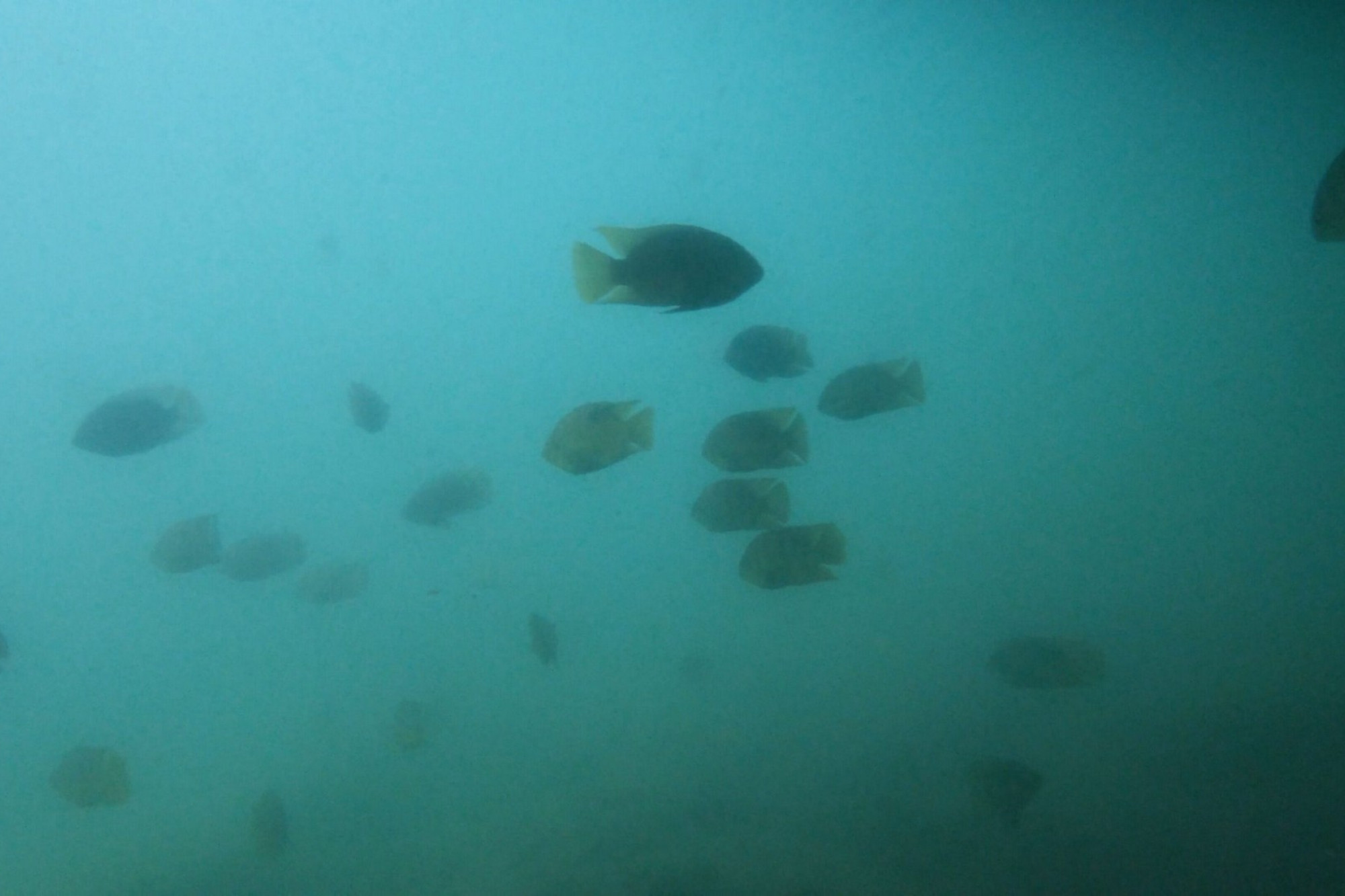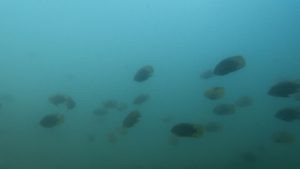
Tim Sexton claims that on a recent dive in Lake Barrine he noticed that “Tilapia fish were out of control and at plague proportions.
Tim who grew up on the Tablelands and has a Bachelor of Science in botany, biochemistry and molecular chemistry and a PhD in population genetics
He says “underwater it’s a catastrophe, there’s very few native fish, the water is all cloudy and we are allowing this fish to thrive”
After 5 dives at the lake in late 2019, he claims he saw “only one school of native rainbow fish”
“Not enough is being done, I rang a few of the government departments about the videos I took and they didn’t seem overly interested,” He says that he first dived the lake in 2013 and “the situation has gotten a lot worse.”
Tilapia in Lake Barrine. Video credit Timothy Sexton
A spokesperson from the Department of Environment and Science (DES) said:
“QPWS coordinates volunteer spear-fishers to control numbers of Tilapia at Lake Barrine, which has been an annual activity since 2014.”
“At the last spearing event at Lake Barrine on the 14th of December 2019, a total of 594 tilapia fish were caught and removed from the lake. Since 2012-2013, 8,606 tilapia have been removed from the lake.”
“Volunteers from the Cairns Underwater Association will conduct the next spearing event within the next two months, with Queensland Parks and Wildlife Service (QPWS) officers overseeing. Information such as number, size and location is recorded at each spearing event”
Tilapia is an introduced species that reproduces rapidly, pushing out native species and degrading water bodies. It is now widespread in Queensland waterways. It’s believed that Tilapia may have arrived via a small creek, which allows outflows from Lake Barrine during high water levels.
A spokesperson from DES said, “While it is unlikely to achieve total eradication of Tilapia from a waterbody like Lake Barrine, spearfishing offers an effective and reasonably efficient way to keep the population in check.”
“QPWS staff also spear Tilapia at Lake Barrine up to eight times a year during the breeding season. Speared Tilapia are disposed of through burying in an authorised pit on QPWS estate. “
The DES has also tried other methods of eradicating Tilapia including: “electrofishing, line fishing, gill netting, fish traps and artificial egg-laying strata. None of these methods was successful in significantly reducing the tilapia population.”
Timothy Sexton believes that there are more natural ways of controlling Tilapia such as “introducing Freshwater Crocodiles or Barramundi or natural native predators into Lake Barrine”

Tilapia infestations have been reported in the Barron River catchment since 1986 and the Mulgrave-Russell catchment (Lake Barrine) since 2007.
Please report any sightings of noxious fish on 13 25 23


